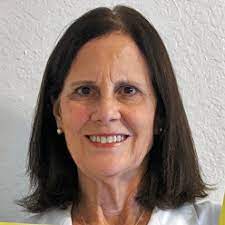By Carol Lindsey, Florida Clinicians for Climate Action
Medical professionals are seeing more patients whose health is adversely affected by the impacts of the climate crisis. Our warming world has student-athletes collapsing from heat stroke on the football field and elderly neighbors who can’t go outside when it’s blazing hot but are also afraid to turn on their air conditioners, fearing high power bills.
That’s why more than 200 physicians, nurses, medical students and other health professionals through the Florida Clinicians for Climate Action advocate for equitable climate solutions and policies at the local, state and federal level — prioritizing Floridians’ health, especially those disproportionately impacted by negative health outcomes.

Because we know the climate crisis is largely driven by polluting carbon-based fossil fuels emissions, there is a stark imperative to reduce our energy use by being more efficient, the least expensive way to meet the need for power. We are particularly concerned that Florida utilities are not doing enough to offer more energy efficiency programs for customers.
We care because we know there are negative health impacts from the mediocre performance of energy efficiency by Florida’s three investor-owned power companies — Tampa Electric Company (TECO), Duke Energy Florida and Florida Power & Light (FPL). Out of the 52 largest utilities nationwide, in program performance and savings, they are ranked 46th, 48th and 51st, according to the American Council for an Energy Efficient Economy.
This translates into high utility bills, especially for lower-income populations with medical issues. Our patients tell us that at times they have to choose between paying for medications and food or paying high utility bills to keep the air conditioner on to avoid an asthma attack.
Right now, there’s an opportunity to improve the performance of Florida’s utilities when it comes to helping low-income people reduce power bills with energy efficiency. Every five years, utilities set conservation goals at the Florida Public Service Commission, whose members are appointed by the governor.
Currently, they’re in the process of changing the rules that guide the process. It’s time to change direction and ditch outdated cost-benefit tests used to determine which programs are cost-effective.
To start, let’s end the state’s reliance on the outdated Rate Impact Measure cost-effectiveness test. Florida is the only state to rely on it to determine which energy efficiency measures to offer. It eliminates efficiency measures with the most savings because they reduce revenue to the utility. Isn’t the whole idea behind energy efficiency to cut energy waste in order to slash energy bills?
The current rules also eliminate measures that pay for themselves in two years or less. That’s the cheap stuff which we should do first, not take off the table.
So let’s get the rules right in the rule-making proceeding at the PSC. Utility companies should expand energy efficiency — not leave savings on the table — to help people reduce power bills and protect their health. Add to that, solar, wind and the electrification of transportation and we will have a fighting chance to stay healthy in the face of a warming climate.
Carol Lindsey, a nurse practitioner, is a Steering Committee member of the Florida Clinicians for Climate Action. For more information on climate and health, visit floridaclinicians.org.
“The Invading Sea” is the opinion arm of the Florida Climate Reporting Network, a collaborative of news organizations across the state focusing on the threats posed by the warming climate.



